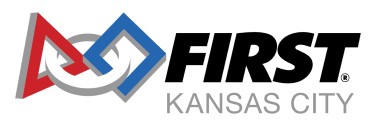14 May 2014 Robotics Competition Teaches Students Leadership, Not Just Engineering
 Innovative competitions push students to build both technical engineering and creative thinking skills.
Innovative competitions push students to build both technical engineering and creative thinking skills.
When high school students from across the country gather to compete in the annual robotics championship hosted by For Inspiration and Recognition of Science and Technology (FIRST) it’s clear they need the technical engineering skills to advance through the rounds of competition.
But founder Dean Kamen says the competition, hosted each year in St. Louis, is about more than just having a foundational knowledge of engineering. The games, he says, are designed to specifically encourage students to think critically, synthesize information and sharpen their teamwork and communication skills.
“Every year we change the game dramatically,” Kamen says. “It’s not about the sport of making the best vehicle. It’s about dealing with new, complicated problems.”
In this year’s championship, which was hosted at the St. Louis Edward Jones Dome in late April, Kamen says the game was designed to incentivize teamwork and communication. While teams were awarded points for successfully shooting a large rubber ball over a roughly five-foot bar in the middle of the field – or running it under the bar – they received significantly more points if they could shoot the ball over the bar and have another robot on the team catch the ball, Kamen says.
Christian Jimenez, a sophomore at Bellarmine College Preparatory in San Jose, California, was on one of the winning teams (The Cheesy Poofs) and says those skills also came in handy off the field.
“As the driver of the robot, I have to be able to lead people to get things done,” Jimenez says. “After I finish a match I have to tell the pit crew what’s wrong with the robot or what they need to do to make the robot better, so I gain leadership skills and communication skills that way.”
Having those real-world problem solving skills is part of the reason Kamen says many FIRST alumni return as mentors, and even get hired as engineers for his company, DEKA Research and Development. He says his company gives priority to to candidates who have participated in FIRST, in part to show support for the program, but also because they are “much more experienced” at dealing with real issues in engineering, real deadlines and product design and development.
“They just come out better young engineers,” Kamen says.
And many business leaders agree that having a certain set of skills and knowledge base is often more important than an individual’s college pedigree. A recent Gallup poll found 84 percent of business leaders said the amount of knowledge a candidate has in a particular field was “very important,” followed by 79 percent who said applied skills were very important. Just 28 percent said the same of a candidate’s college or university major.
“I have been able to gain real world, hands-on experience in the field of engineering throughout my three, and soon to be four, years of FIRST,” Christopher Sides, another member of The Cheesy Poofs, tells U.S. News in an email. “I feel like these experiences have really given me a valuable glance into the vast world of engineering, and have given me an upper hand in life.”
What’s more, so-called “soft skills” – such as decision-making, problem-solving and communication skills – are highly valued by employers. In fact, an April survey from the National Association of Colleges and Employers found those skills were ranked as slightly more important than technical knowledge related to a job and proficiency with certain programs.
But Kamen says students often aren’t able to develop those applied skills in school, which he says is much more focused on analysis – breaking down problems to see how they have been solved.
“You go to school and instead of having to invent a world on your own, you stand on the shoulders of thousands of years of geniuses because in every class you get to learn the sum total of all the great achievements of the past,” Kamen says. “But where do you learn to put them all together and synthesize and build something new and different with those tools that have never been done before?”
That’s why he says many young students are so attracted to sports. Once they learn parts of the rules and gather knowledge about a sport, they want to go play the sport to further develop those skills. Kamen says the FIRST robotics competition can help fill the same role for students learning math, physics or engineering by making the academics “relevant and fun” and giving them the experience to move forward.
“In the real world, you don’t sit around solving problems to which the answer’s already in the back of the book,” Kamen says. “In engineering, you take on new problems and there is no answer in the back of the book.”
By Allie Bidwell, US News & World Report
